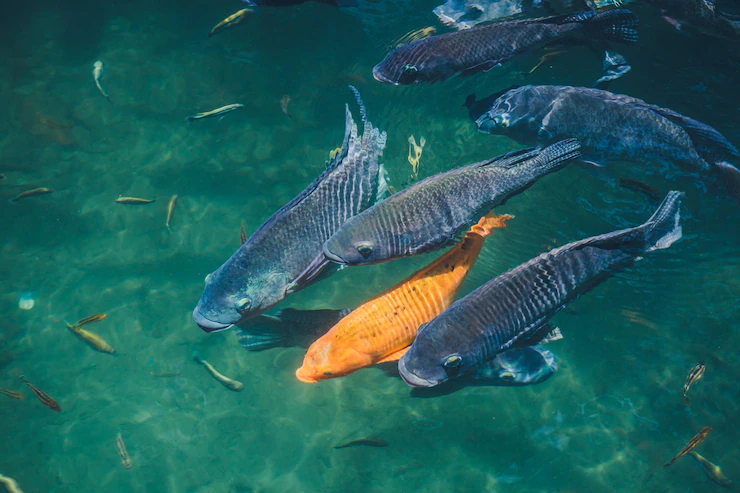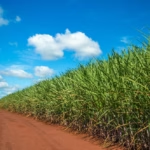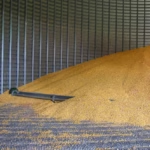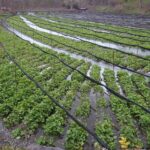Fish farming, also known as aquaculture, has gained prominence in South Africa as a means of sustainable food production and economic growth. However, like any farming activity, fish farming is susceptible to various diseases and infections that can impact the health and productivity of fish populations. In this article, we will provide an overview of common diseases and infections that fish farmers in South Africa should be aware of, along with preventive measures and management strategies.
- Aeromoniasis: Aeromoniasis is a bacterial infection that affects both freshwater and marine fish species. It is caused by the bacteria Aeromonas spp. and can lead to skin ulcers, fin rot, and internal infections. Good water quality management, regular health monitoring, and implementing biosecurity measures are essential in preventing and controlling aeromoniasis.
- Ichthyophthiriosis (Ich): Ichthyophthiriosis, commonly known as Ich, is a parasitic infection caused by the protozoan Ichthyophthirius multifiliis. It affects various fish species and manifests as white spots on the skin, gills, and fins. Proper filtration, maintaining optimal water quality, and quarantining new fish to prevent the introduction of the parasite are key preventive measures.
- Viral Hemorrhagic Septicemia (VHS): Viral Hemorrhagic Septicemia is a highly contagious viral disease that primarily affects freshwater fish, particularly salmonids. It can cause hemorrhaging, organ damage, and high mortality rates. Strict biosecurity protocols, including preventing the introduction of infected fish and disinfection of equipment, are crucial in preventing VHS outbreaks.
- Infectious Pancreatic Necrosis (IPN): IPN is a viral disease that affects a wide range of fish species, including salmon, trout, and tilapia. It can cause severe mortality in juveniles and significantly impact fish populations. Vaccination, maintaining optimal water quality, and regular health monitoring are important in preventing and managing IPN.
- Bacterial Kidney Disease (BKD): Bacterial Kidney Disease is caused by the bacterium Renibacterium salmoninarum and primarily affects salmonids. It targets the kidneys and can lead to organ failure and mortality. Maintaining good water quality, avoiding stressors, and practicing strict biosecurity measures are crucial for preventing BKD.
- Columnaris Disease: Columnaris Disease, caused by the bacteria Flavobacterium columnare, affects various freshwater fish species. It presents as white, gray, or yellowish lesions on the skin, gills, and fins. Proper nutrition, good water quality management, and regular health checks are vital in preventing and controlling Columnaris Disease.
- Motile Aeromonad Septicemia (MAS): MAS is caused by motile aeromonads, including Aeromonas hydrophila, and affects both freshwater and marine fish. It can cause skin lesions, fin rot, and systemic infections. Maintaining optimal water quality, avoiding overcrowding, and implementing proper hygiene practices are essential preventive measures.
- Parasitic Infestations: Fish farming in South Africa is susceptible to various parasitic infestations, including flukes, lice, and protozoan parasites. Regular health monitoring, quarantine procedures for new fish introductions, and appropriate treatment protocols can help control and prevent parasitic infestations.
- Fungal Infections: Fungal infections can occur in fish with compromised immune systems or due to poor water quality. Fungal infections often manifest as white or gray cotton-like growth on the skin, fins, or gills. Maintaining optimal water quality, proper nutrition, and reducing stressors can help prevent fungal infections.
- Environmental Stressors: Environmental stressors such as poor water quality, temperature fluctuations, and overcrowding can weaken fish immune systems, making them more susceptible to diseases and infections. Proper farm management, regular water testing, and providing optimal environmental conditions are crucial in minimizing stressors and promoting fish health.
Diseases and infections pose significant challenges in fish farming in South Africa. However, with proper farm management practices, biosecurity measures, and regular health monitoring, farmers can minimize the risk of outbreaks and maintain healthy fish populations. Collaboration with aquaculture experts, veterinarians, and relevant authorities is essential in implementing effective disease prevention, early detection, and management strategies. By prioritizing fish health and implementing preventive measures, fish farmers can ensure the sustainability and profitability of their aquaculture ventures.








